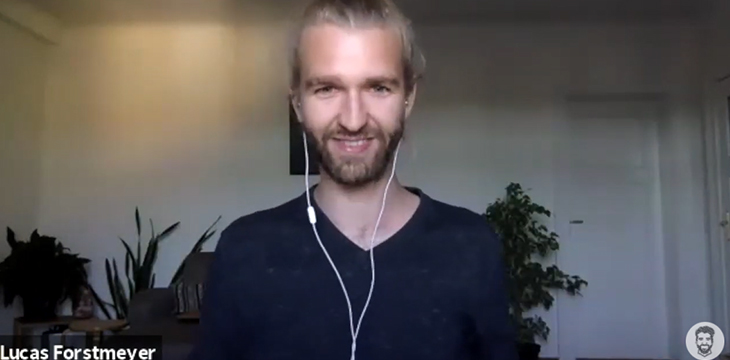|
Getting your Trinity Audio player ready...
|
CoinGeek’s resident chief Bitcoin Historian Kurt Wuckert Jr. caught up with Lucas Forstmeyer, discussing the economic and philosophical foundations underpinning Bitcoin, in his latest interview appearance championing the benefits of BSV enterprise blockchain.
He began with a discussion of small blockers, defined as those involved in BTC and to some extent BCH, who are wedded to the idea that the block size must be artificially limited. Wuckert says he believes this is a flawed approach, and one that runs against the original vision for Bitcoin as spelled out by the Satoshi Nakamoto whitepaper.
He notes that small blockers believe they can build a perfect system from the top down, and as a result, they keep changing protocols and tinkering with the tech. This is a mindset that there is something humans can do to make a perfect system, rather than allowing individuals to work within a freer environment to make their own systems to suit their own purposes.
For Wuckert, this is a question of technocracy versus freedom. He points out that people who think like small blockers in regards to economics are often seen as murderous dictators in retrospect, because they value the system more than the people it is supposed to serve. Planning of this order does not work—it is the free market that is required in order to establish better, more functional systems that suit their participants.
He notes that the culture in small block communities revolves around what you are allowed and are not allowed to do with the blockchain. But in reality, Bitcoin was always meant simply to be a tool. There are no restrictions beyond the protocol rules themselves being set in stone, and ‘big blockers’ like Wuckert and the BSV community believe that this free market ideal should be allowed to flourish, in order to help Bitcoin reach its true potential.
In a similar way, the topic of decentralization splits crypto communities, with the small blockers tending towards broader decentralization. For Wuckert, this is a fundamental misunderstanding of where the value from competitive mining lies. Rather than aspiring to hundreds of thousands of miners with fractional incentives to keep the blockchain accurate, Wuckert says he is comfortable with the involvement of larger players—so long as the incentives to keep the system honest and secure remain in force, this may actually be preferable to a larger number of miners with less of a stake in the success of the blockchain.
He goes on to explain how the origins of Bitcoin come from a privacy and human rights background. At the outset, many of the early proponents of Bitcoin believe there to have been a need for a system that allows for payments and data exchange without the middleman of third party services—and crucially, governments.
The cryptographic keys part was created to serve as an attestation of identity, without the need for a verifying party, building trust into the very DNA of the system. This trust is then protected by the competitive mining process—a pure free market ideal, with incentive structures in place to ensure it remains in optimum condition.
As the only true implementation of Bitcoin per Satoshi’s vision, Wuckert sets out the philosophical underpinnings to the BSV protocol that demonstrate why it is Bitcoin as it was originally intended, and why this matters in a world that still sees people investing speculatively in BTC as their main understanding of “Bitcoin.”
The discussion runs to over an hour, looking at the issues around BSV blockchain from a philosophical and economic angle, as Wuckert waxes lyrical about the fundamental beliefs and principles that set BSV out from the others.

 02-23-2026
02-23-2026 




